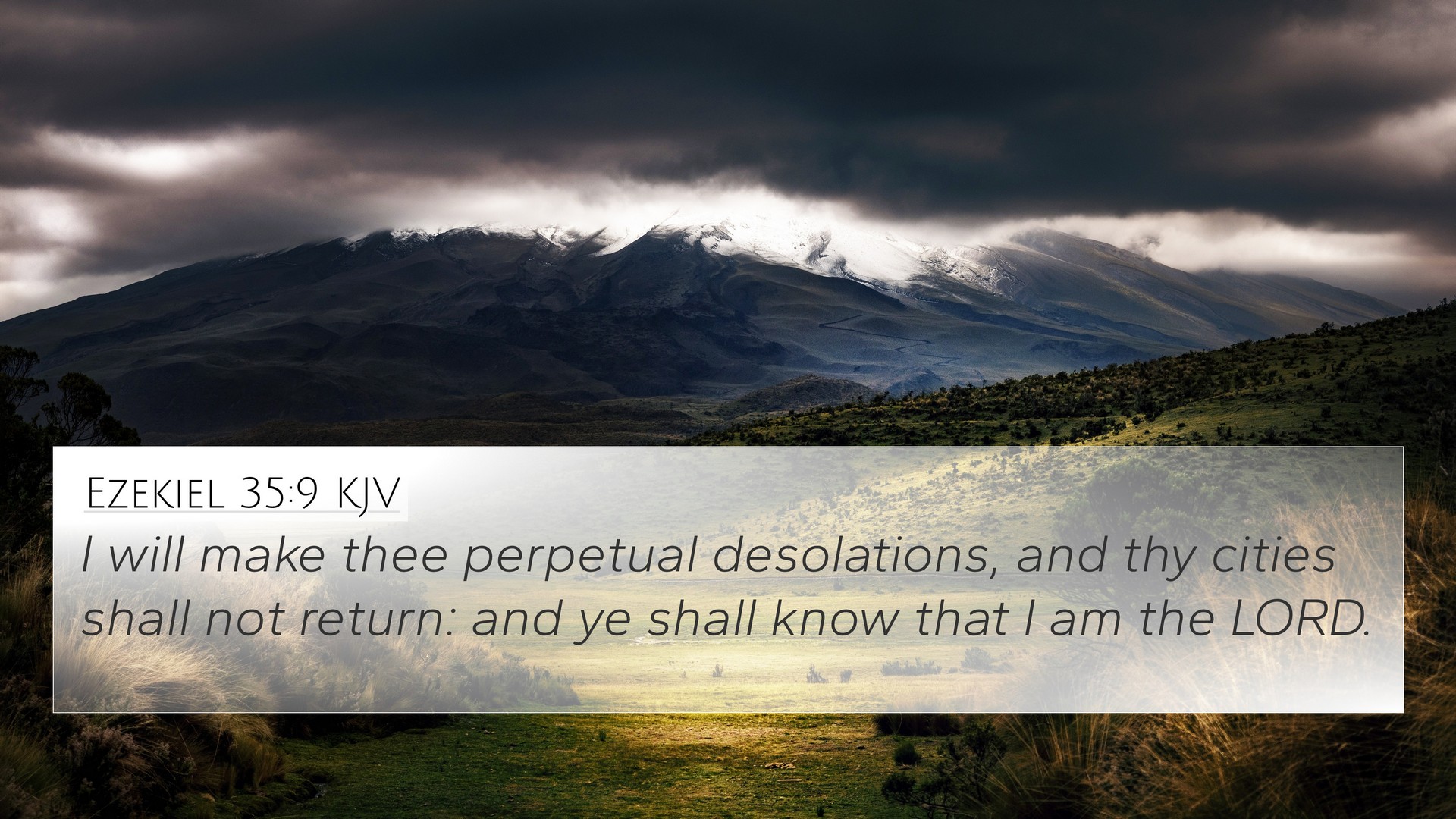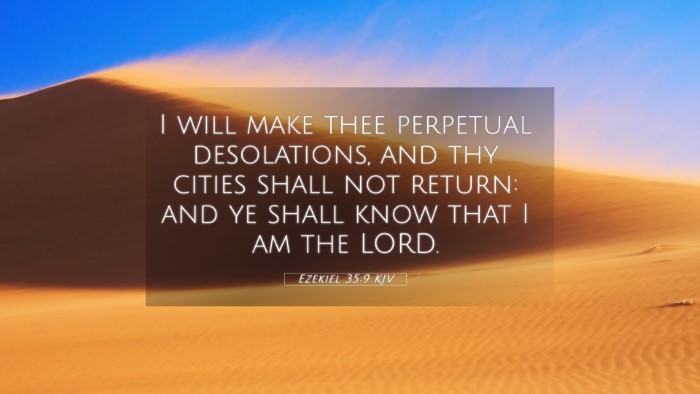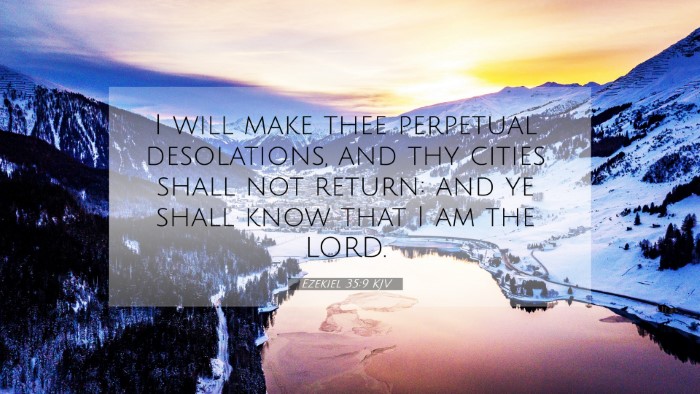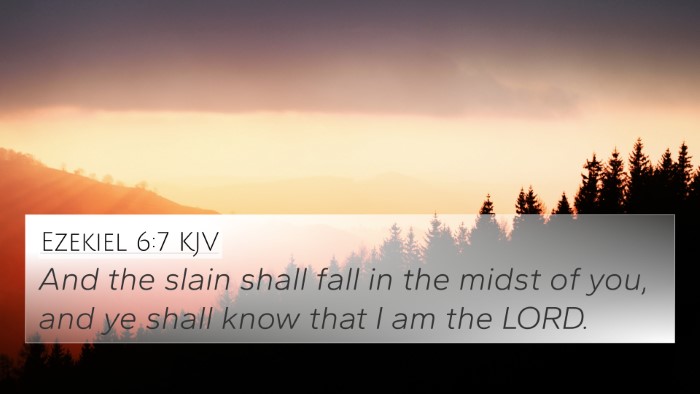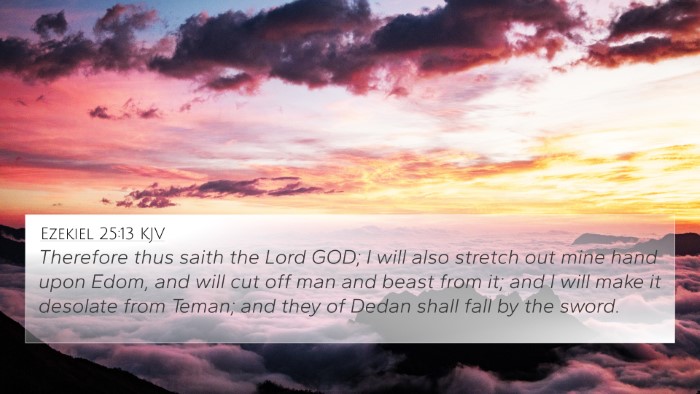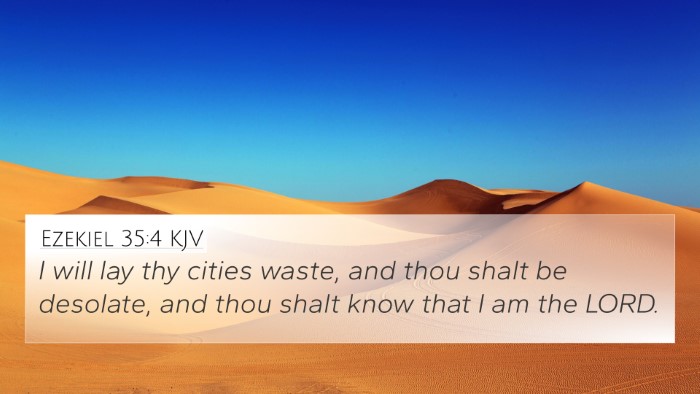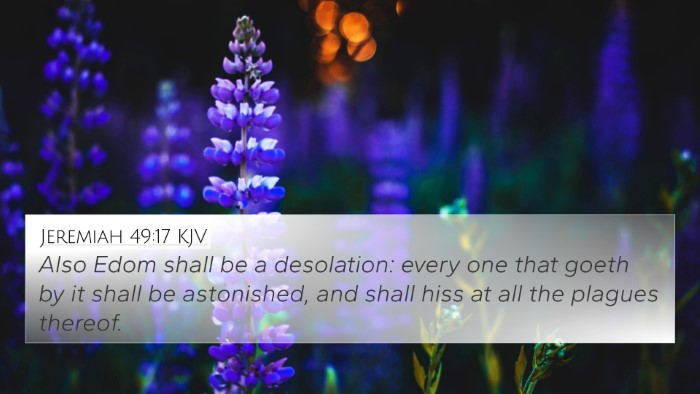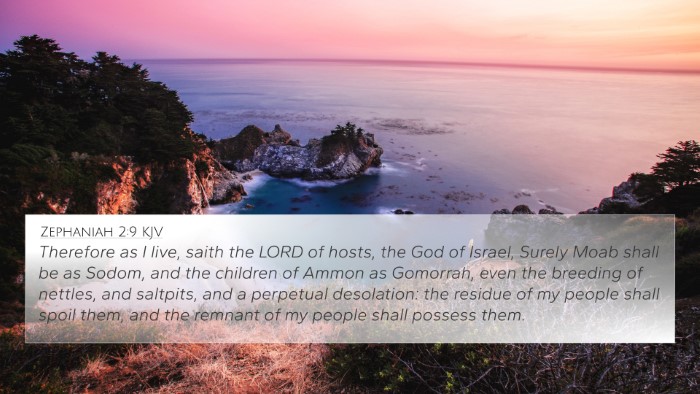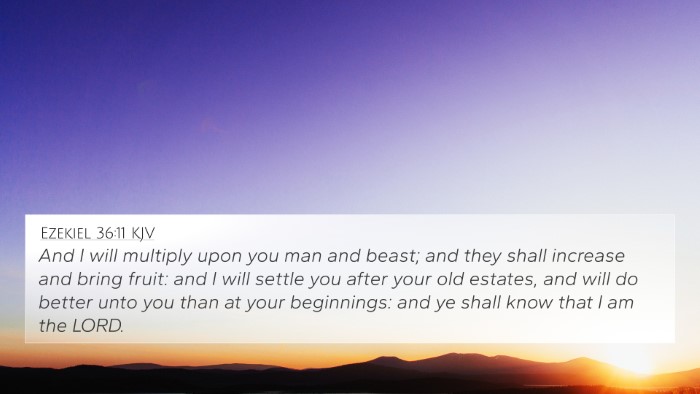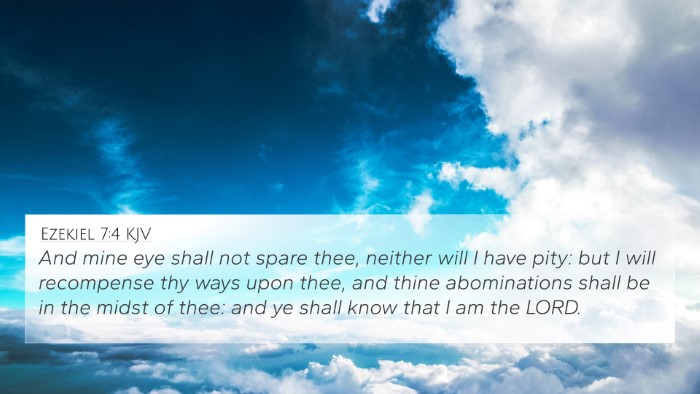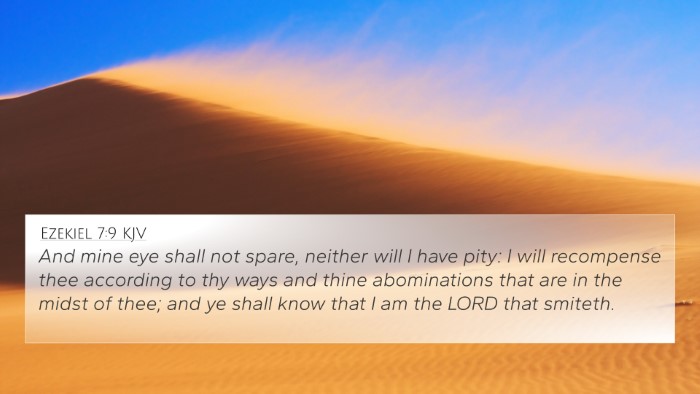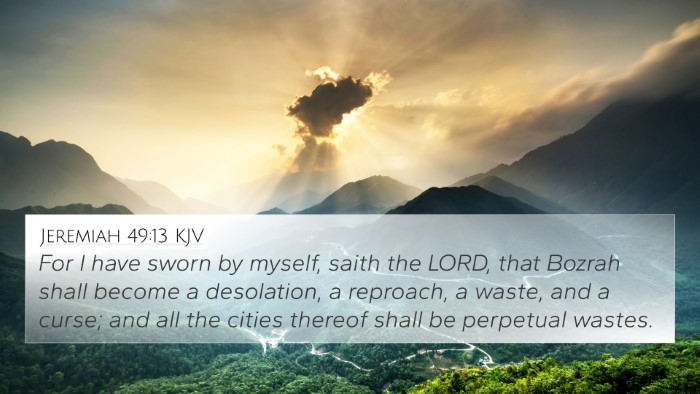Ezekiel 35:9 - Summary and Insights
Ezekiel 35:9 states: "I will make thee perpetual desolations, and thy cities shall not return: and ye shall know that I am the LORD."
Meaning and Interpretation
This verse speaks of God's judgment upon the land of Edom. Through various public domain commentaries, we glean that this declaration represents a significant prophetic warning about the consequences of Edom's actions against Israel. Below is a synthesis of insights from Matthew Henry, Albert Barnes, and Adam Clarke:
-
Matthew Henry's Commentary:
Henry emphasizes the theme of divine justice and retribution. He details how God’s promise of desolation reflects Edom's perpetual state of enmity against Israel. Henry notes that the desolation signifies not only physical destruction but a spiritual one, leading to a profound awareness of God's sovereignty.
-
Albert Barnes' Notes:
Barnes highlights the significance of 'perpetual desolations' as a profound statement of God’s enduring judgment. He argues that this serves as a stark reminder that God will ultimately establish justice in the world, reinforcing the idea that nations are accountable for their actions, especially in relation to His chosen people.
-
Adam Clarke's Commentary:
Clarke elaborates on the prophetic nature of this verse, suggesting that such judgments serve both to punish the wicked and to comfort the afflicted. He interprets the phrase 'ye shall know that I am the LORD' as a clarion call for recognition of God's authority, a theme that is consistent throughout the prophetic literature.
Bible Verse Cross-References
This verse connects with several other scriptures, which provide a deeper understanding of its themes of judgment and divine sovereignty:
- Obadiah 1:10-14: A parallel in Judgment against Edom for violence against Jacob.
- Isaiah 34:5-6: Offering a similar foretelling of desolation against nations hostile to Israel.
- Lamentations 3:34-36: Emphasizes that God does not overlook injustices.
- Jeremiah 49:17-18: Another prophetic message indicating the destruction of Edom.
- Ezekiel 25:12-14: Further details on God’s judgment against Edom due to their cruelty.
- Psalm 137:7: A remembrance of Edom's urge to destroy Jerusalem.
- Malachi 1:4: Refers to Edom as a land laid waste, reinforcing the theme of desolation.
- Romans 12:19: A New Testament affirmation of God's vengeance and justice.
- Revelation 20:10: A finality in judgment against Satan’s allies, akin to the fate of Edom.
- 2 Thessalonians 1:6: Affirms God's righteous judgment against persecutors.
Thematic Connections
The themes present in Ezekiel 35:9 resonate broadly throughout the Scriptures. The interconnectedness between these verses illustrates a consistent narrative regarding God’s authority, justice, and the ultimate vindication of His people:
- Divine Justice: Both Old and New Testament verses reflect God’s passion for justice.
- Prophetic Warning: There are many instances where prophets warned of impending judgment, similar to Ezekiel’s message.
- The Role of Edom: Edom's consistent portrayal as an enemy of Israel provides a clearer understanding of God’s decree in this verse.
- Recognition of God’s Sovereignty: Calls to acknowledge the Lord—this theme is prevalent and crucial in both the Old and New Testaments.
Using Bible Cross-References
To deepen your understanding of spiritual themes and Biblical narratives, employing a Bible cross-reference guide can be extremely valuable. Here are some tools and methods:
- Bible Concordance: Use concordances to locate passages related to specific terms like "desolation" and "judgment."
- Bible Cross-Reference System: Familiarize yourself with various cross-referencing Beth books, such as Strong's concordance.
- Cross-Reference Bible Study: Study techniques focused on identifying similar themes and warnings across scripture.
Conclusion
Ezekiel 35:9 stands as a solemn reminder of God's sovereignty over nations, underscoring the certainty of His justice. Through careful cross-referencing and thematic discussions, believers can navigate the rich depth of scripture, revealing connections that affirm God's enduring truth, and understanding the critical lessons from Israel's history and prophecies about judgment.
